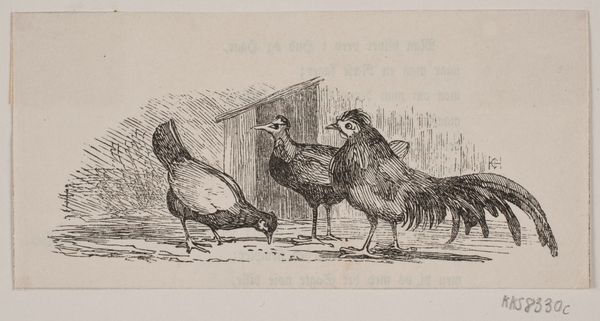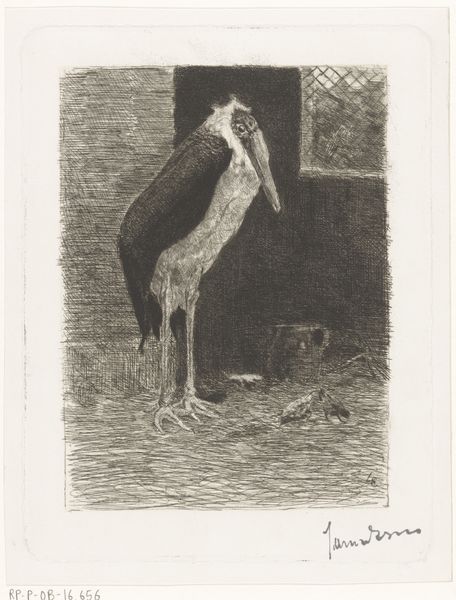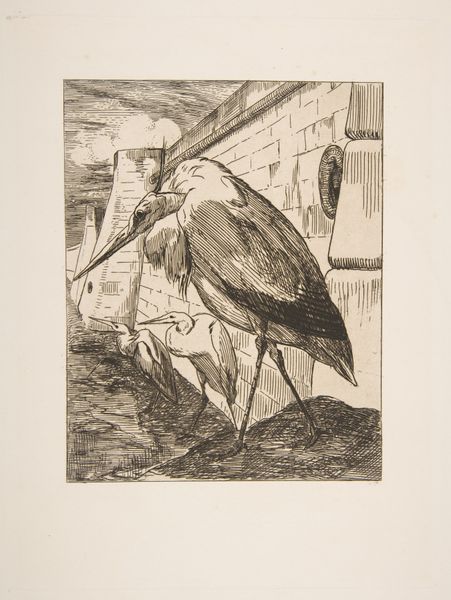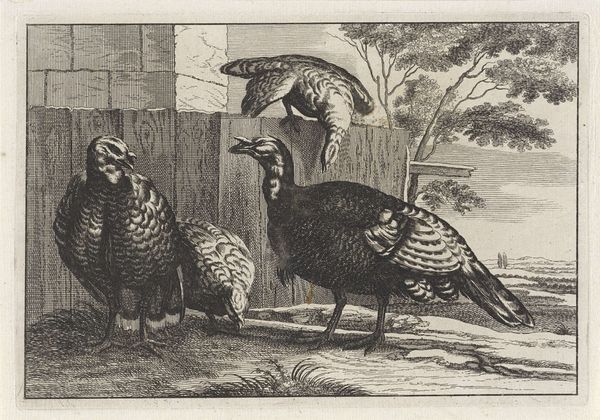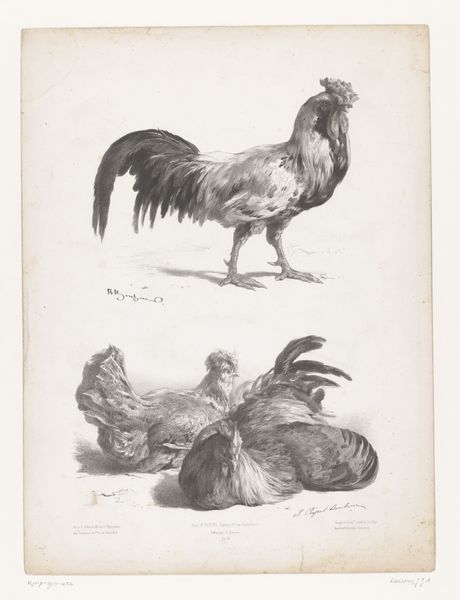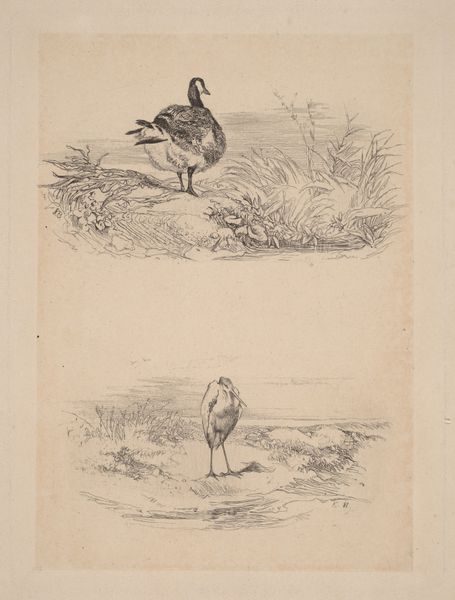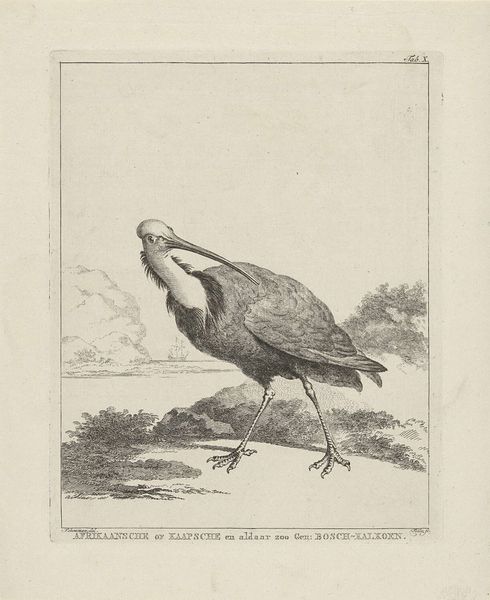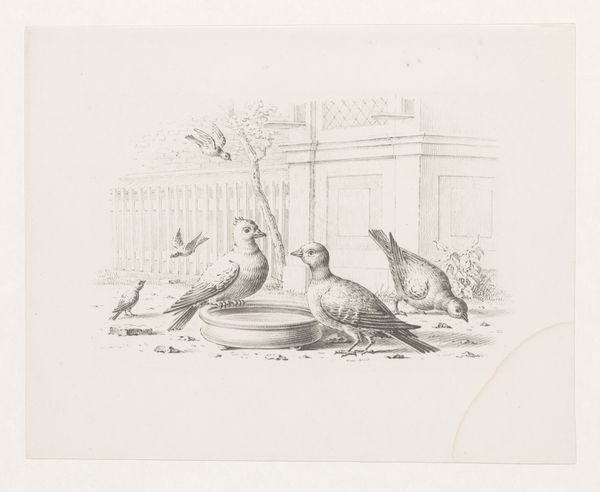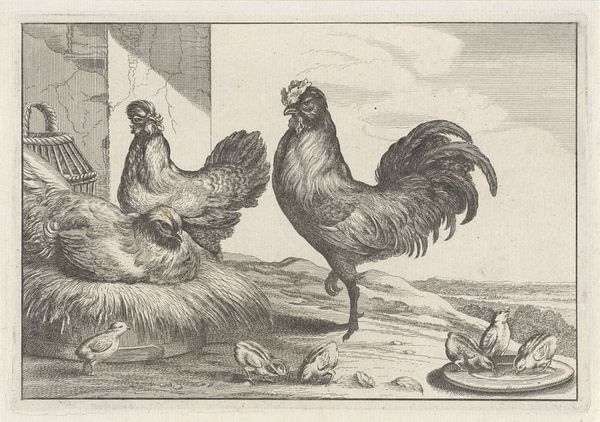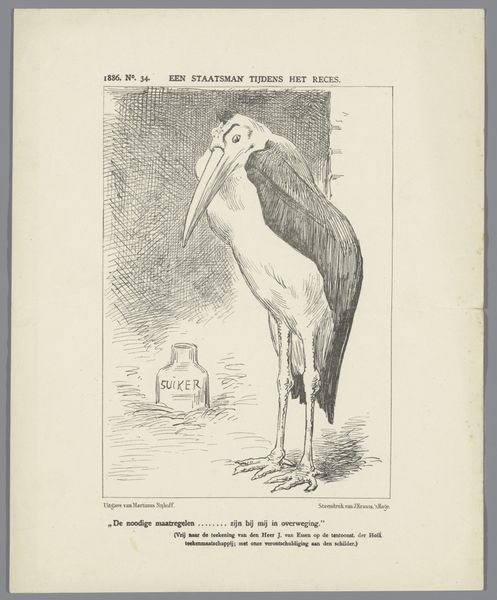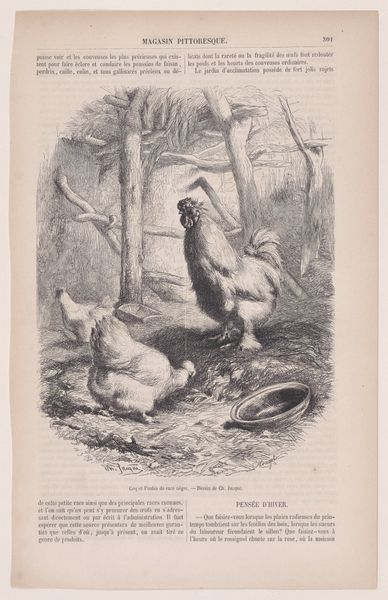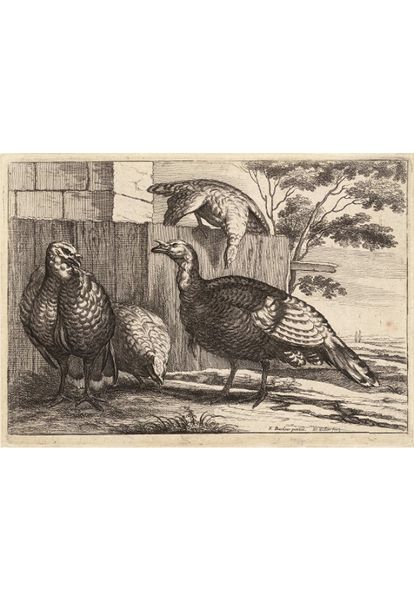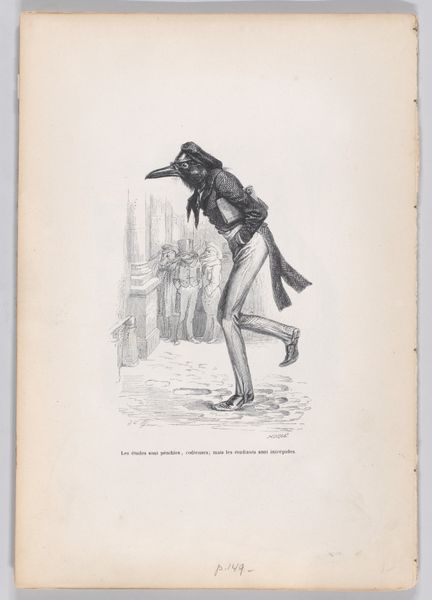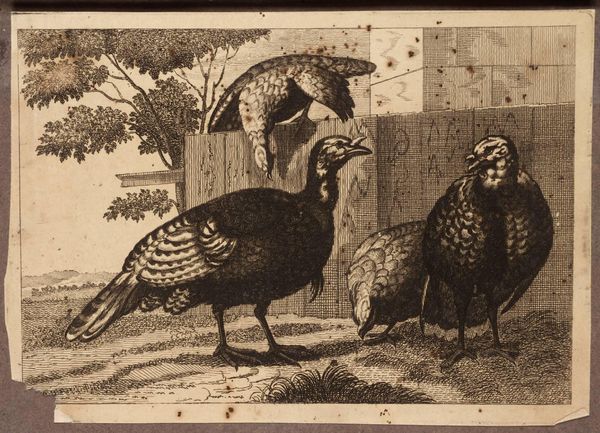
print, woodcut
#
light pencil work
#
quirky sketch
# print
#
pen sketch
#
pencil sketch
#
personal sketchbook
#
idea generation sketch
#
sketchwork
#
pen-ink sketch
#
woodcut
#
sketchbook drawing
#
sketchbook art
Dimensions: 79 mm (height) x 79 mm (width) (bladmaal)
Curator: Allow me to introduce “Secretary Bird in the Jardin des Plantes,” a woodcut made in 1862. Editor: Immediately, I’m struck by the linework – it feels like peering into someone's private sketchbook, capturing a moment of the everyday. Curator: Indeed. Consider the Jardin des Plantes in 19th-century Paris. It served as both zoological garden and a hub for scientific study and colonialism’s imperative to display its plunder. This simple sketch brings to mind the ways living creatures were, and continue to be, commodified for entertainment and so-called education. Editor: I see what you mean. There's something inherently melancholy about the bird's dignified posture, almost at odds with the evident captivity suggested by the criss-crossed lines that contain them. What cultural meanings can we gather from the titular subject? Curator: The secretary bird itself, with its distinctive quill-like crest, was and is frequently associated with intellect and bureaucratic efficiency – even freedom through administrative powers. How ironic, when confined. Editor: The very deliberate visual weight placed on its gaze also pulls us in—what do you feel it’s implying? Curator: That, I believe, shifts with the viewer. I find myself questioning the gaze and reflecting on the systems that brought it there. Is it judgment? Observation? Or a silent plea? Editor: And the sketchiness itself—it adds to that sense of a captured, fleeting moment, resisting idealization. Curator: Precisely, refusing the polish of academic art. It whispers truths of observation, and, perhaps unintentionally, echoes larger truths about societal power dynamics and imposed restrictions. Editor: I suppose, ultimately, this image, rendered through a technique that invites mass production, encapsulates the layered ironies of that period so effectively. Curator: It gives pause to the very notion of who is contained and who is free, who does the observing and who is observed. A timely moment for contemplation, then.
Comments
No comments
Be the first to comment and join the conversation on the ultimate creative platform.
